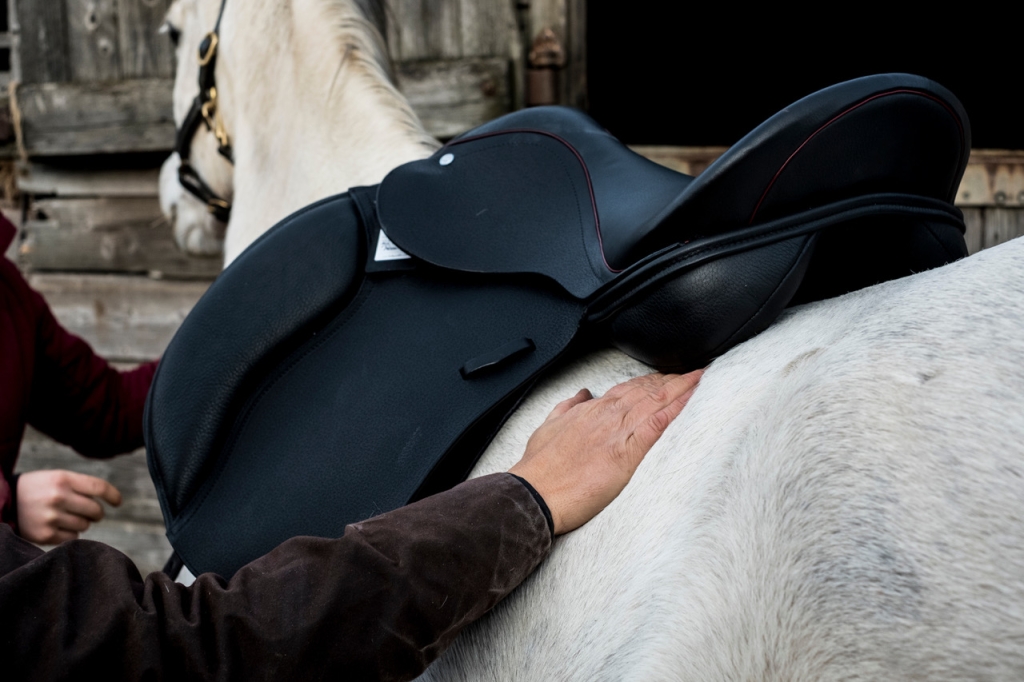
Feed Manufacturer’s Survey Reveals Equestrian Industry’s Views On Obesity
A survey of the equestrian industry about views on equine obesity, has shown that those who work with horses believe that lack of knowledge is a primary cause of overweight horses and ponies and that the problem can be addressed.
The survey, conducted by the makers of SPILLERS™ last month, was completed by 638 industry professionals including riding instructors/coaches (32%), yard managers/grooms (24%), physiotherapists/osteopaths/chiropractors (15%) and vets/vet nurses (13%). The aim was to increase understanding of the multifaceted issues surrounding equine obesity, in order to provide actionable recommendations for effective intervention strategies.
Prevalence of Obesity: An overwhelming 83% of respondents encountered obesity either ‘very frequently’ or ‘somewhat frequently’. Notably, 30% of show judges reported encountering obesity ‘very frequently’ (the lowest group %) compared to 79% of vets (the highest group % ).
Conversations with horse owners about obesity: 73% of respondents engaged in discussions with horse owners about weight management frequently. 87% of vets and 85% of physiotherapists/osteopaths/chiropractors actively participated in these conversations.
While only 70% of show judges/stewards regularly discussed obesity with horse owners, they were the most confident sector, with 30% stating they were ‘very confident’ to have such conversations. Comparatively, only 14% of vets were ‘very confident’ and 40% weren’t confident at all. As an average, riding instructors and coaches were most confident about discussing obesity with horse owners.
Causes of Obesity: The primary causes of obesity identified included lack of knowledge and insufficient exercise. 83% of respondents believed there was insufficient awareness of equine obesity among UK horse owners.
There was unanimous agreement that diet and nutrition played a role in preventing and managing obesity in horses. Exercise was seen as ‘extremely important’ or ‘somewhat important’ with 96% of respondents.
Obesity and wellbeing: the majority (81%) of respondents believed that obesity significantly decreased wellbeing of horses. Zero respondents believed it had no significant impact. 100% of vets agreed that obesity either ‘significantly’ or ‘moderately’ impacted wellbeing, whilst 4% of show judges felt that obesity only slightly decreased wellbeing.
Preventing obesity: In answer to the question ‘what improvements or changes do you think could be made within the equine industry to better support the prevention and management of obesity in horses?’ the biggest response theme was education, including more open and honest conversations with horse owners and more restrictions at competitions for overweight horses. There was also a call for more research and wider use of strip grazing and track systems.
Education: in terms of what respondents would like SPILLERS to do to help tackle equine obesity there was a resounding request for more education and advice, as well as praise for the SPILLERS’ Slimmers Club.
Responses included:
· Education, education, education!
· Social media photos of horses in ideal body weight condition especially natives and cobs
· Clearer labelling on feedbags
· Stronger messaging about the risks of obesity
· All horses at shows to be assessed for BCS and overweight horses banned from competing
Optimism: Notably more than a third of respondents (37%) were optimistic about the potential to reduce the prevalence of obesity in horses in the UK, with continued education. The most optimistic were vets/vet nurses and physiotherapists/osteopaths/chiropractors. The most pessimistic groups were riding instructors/coaches and yard managers.
The survey is part of the SPILLERS brand’s educational and practical work, to help combat equine obesity in the UK. The brand’s flagship initiative to help achieve this mission is the SPILLERS Slimmers’ Club , which now supports more than 11,000 horse owners with practical support and camaraderie for owners of overweight horses and ponies, to aid them on their weight loss journey.
“The survey has given us valuable knowledge from industry professionals on how they and their clients perceive the problem of obesity,” said Bella Fricker, Project Lead at Mars Horsecare, home of the SPILLERS brand. “With better clarity about how positive changes can be made we hope to move forward with some new educational projects to give further support to horse owners and industry professionals from recognition, management and prevention perspectives. We want to banish equine obesity for good and we hope that by working together we can make change happen.”
You can download the full results here.
To find out more about the SPILLERS range of low calorie feeds contact our Care-Line on + 44 (0)1908 226626 or visit www.spillers-feeds.com.
More from Spillers

 5 months ago
5 months ago  737 views
737 views

 5 hours ago
5 hours ago